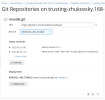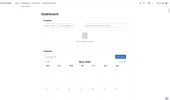Here is what I have described in my Plesk feature suggestion below:
"According to Plesk Obsidian's Documentation for Web Applications at Web Applications regarding "Updating Apps," by default, Plesk installs the latest available app versions and updates apps immediately once the newer versions are available.
However, this is not true because Plesk offered for the past year 2021 an outdated version 3.10.4 of the Moodle App. Recently Plesk released a Moodle update to version 3.10.10, for which the security support period ended on 9 May 2022 (see Roadmap - MoodleDocs for more details). For most people and their organizations, this is a major security risk.
It should not be a too complicated task for the Plesk developers to prepare an update for Moodle 4 since the latest release of Plesk Obsidian already meets Moodle's server requirements described at Moodle 4.0 release notes - MoodleDocs. "
Hopefully, after receiving our votes, the Plesk product managers will take into consideration this feature suggestion and start working on this request shortly.
Moodle 4.0 Upgrade in Web Applications
"According to Plesk Obsidian's Documentation for Web Applications at Web Applications regarding "Updating Apps," by default, Plesk installs the latest available app versions and updates apps immediately once the newer versions are available.
However, this is not true because Plesk offered for the past year 2021 an outdated version 3.10.4 of the Moodle App. Recently Plesk released a Moodle update to version 3.10.10, for which the security support period ended on 9 May 2022 (see Roadmap - MoodleDocs for more details). For most people and their organizations, this is a major security risk.
It should not be a too complicated task for the Plesk developers to prepare an update for Moodle 4 since the latest release of Plesk Obsidian already meets Moodle's server requirements described at Moodle 4.0 release notes - MoodleDocs. "
Hopefully, after receiving our votes, the Plesk product managers will take into consideration this feature suggestion and start working on this request shortly.


